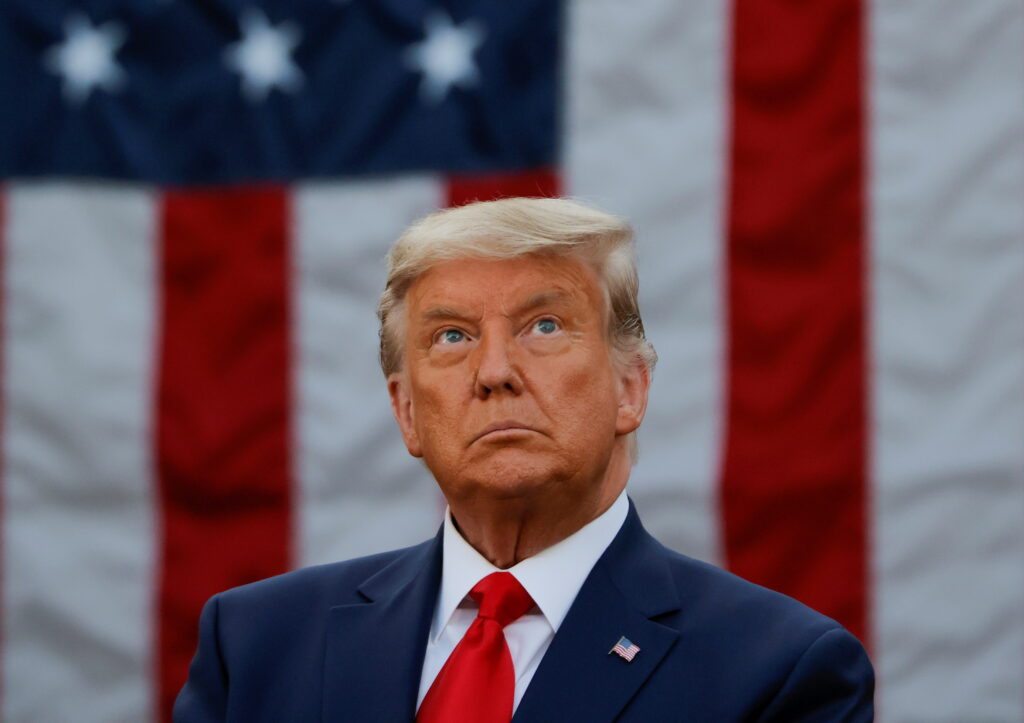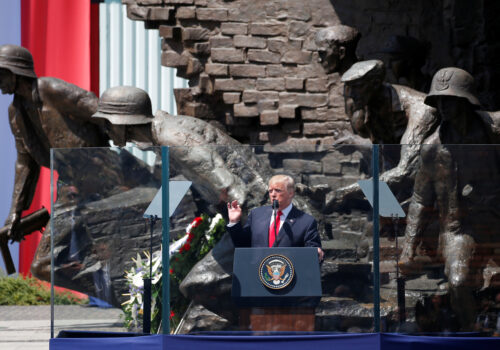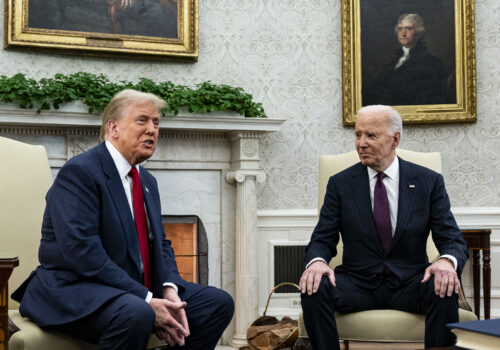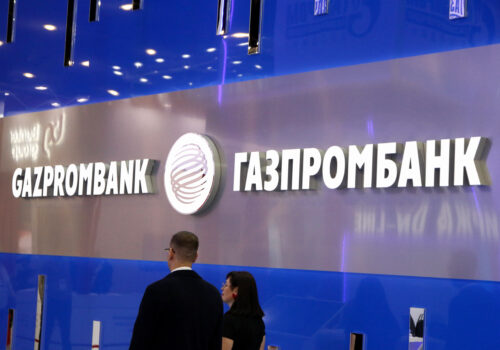It’s in the nature of President-elect Donald Trump’s hurry-up transition offense that he confronts the most significant decisions of his presidency long before he assumes office on January 20. They swirl around how he counters Russian President Vladimir Putin and supports Ukraine’s independence and sovereignty.
It’s hard to overestimate how great a difference his Ukraine-related decisions in the coming weeks will make to the trajectory of his second term. Beyond that, Trump can either assert or undermine US global leadership for an emerging era of great-power competition that will stretch far beyond his four years in office.
Done in the wrong way, Trump’s decisions will signal to Russia, China, North Korea, and Iran—the evolving “axis of aggressors”—that the United States is divided, distracted, and prepared to cede the global leadership that it has assumed since World War II, whether intentionally or by default.
Done in the right way, Trump’s decisions can confound his critics, who see some of his early nominations for cabinet positions as evidence that he’s more interested in disruption and retribution than in building a legacy equal to that of great US presidents of the past.
What could bring sweeter satisfaction for Trump than, for example, a Nobel Peace Prize? And history’s oddities present him with that opportunity right at the start of his new term in office.
The contours of such a deal are already apparent. Ukraine would give up for now most of the 20 percent of its territory currently occupied by Russia in exchange for iron-clad security guarantees, including a path certain (at best, immediate) to NATO membership and, separately, to European Union membership.
For that kind of deal, Trump will have to abandon his campaign rhetoric about bringing the war to an end in twenty-four hours, as Putin for the moment believes the military and political momentum is with him.
In so many words, that’s the message new NATO Secretary General Mark Rutte delivered to Trump when Rutte visited Mar-a-Lago, Trump’s Florida White House, as the first European leader to meet him following the election.
Credit Rutte, who as Dutch prime minister worked effectively with Trump during his first term, with understanding the president-elect’s proclivity for personal diplomacy, not to mention the value of being among the first in line.
“We have a strong relationship,” Rutte told the Financial Times this week. “We liked each other when I was in my previous role when he was president. And I sense that we can work from the same basis. And it helps that you find it’s genuinely a pleasure to work together.”
Speaking ahead of a NATO foreign ministers’ meeting on Tuesday, Rutte said he told Trump that he needs to consider how the outcome of the Ukraine conflict could be interpreted by the quartet of US adversaries—China, Russia, Iran, and North Korea. “They are all working together,” Rutte told reporters ahead of the meeting. This collaboration is something Trump has not yet publicly acknowledged as a reality or a problem.
Speaking to the Financial Times, Rutte put it in language that both appeals to Trump and captures the historic moment. “We cannot have a solution where we have Kim Jong Un and the Russian leader and Xi Jinping and Iran high-fiving because we came to a deal which is not good for Ukraine, because long-term that will be a dire security threat not only to Europe but also to the US.”
Someone else who understands the value of personal diplomacy with Trump is Ukrainian President Volodymyr Zelenskyy, who met with Trump personally in September during the campaign and spoke with the president-elect just after the election. Zelenskyy also knows that 2025 will be a decisive year in the peace effort, and that Trump holds many of the cards necessary for his success, which Trump still might play in all the wrong ways.
Zelenskyy has changed his tune in recent days from demands that Ukraine keep fighting until it regains the territory that Moscow now controls or occupies. “Our army lacks the strength to do that,” he told Kyodo News of Japan. “We do have to find diplomatic solutions.”
Zelenskyy now says he could accept a ceasefire that would leave some Ukrainian territory in Putin’s hands if the rest of Ukraine’s territory gained NATO’s protection. It remains a long way from Trump’s campaign statements on Ukraine and the doubts he has previously expressed about NATO to a willingness to provide Kyiv with Alliance protection, much less membership.
Rutte, though not ready to discuss Ukraine’s NATO membership prospects with media this week, did discuss a path that would begin with greater Western military support now and a less immediate emphasis on the peace process.
“The main issue with Ukraine has to be, ‘How do we get more military aid into Ukraine?’ That’s priority number one, two, and three,” Rutte said. “In the meantime, that bridge to NATO membership is being built,” he added, through bilateral security deals with NATO member countries.
My last column, “Biden’s Ukraine moves are a gift to Trump,” focused on how President Joe Biden has provided the president-elect badly needed negotiating leverage. Biden did this by deciding to allow Ukraine to use longer-range US missile systems to hit targets inside Russia, by providing Kyiv with antipersonnel landmines to slow Moscow’s advance, and by applying new US sanctions on Gazprombank.
What’s entirely unclear thus far, however, is whether Trump, the author of The Art of the Deal, intends to build upon that leverage and use it for historic purposes—for example by arming Ukraine to the teeth if Putin is unwilling to negotiate.
Presidents rarely get to choose the crises that define their presidencies. Stopping Putin’s aggression in Ukraine will be Trump 2.0’s first test and opportunity, one that will have further-reaching consequences than the president-elect has yet recognized.
Frederick Kempe is president and chief executive officer of the Atlantic Council. You can follow him on X: @FredKempe.
This edition is part of Frederick Kempe’s Inflection Points newsletter, a column of dispatches from a world in transition. To receive this newsletter throughout the week, sign up here.
Further reading
Wed, Dec 4, 2024
A winning strategy to end Russia’s war against Ukraine
New Atlanticist By
More than a dozen experts from the United States and Europe share their recommendations to the incoming Trump administration about how best to end Russia's war against Ukraine.
Sat, Nov 23, 2024
Biden’s Ukraine moves are a gift to Trump
Inflection Points By Frederick Kempe
The outgoing administration is “emptying the barrel,” which could improve the incoming president’s chances at negotiating a deal worth having.
Thu, Nov 21, 2024
Five questions (and expert answers) about major new US sanctions on Russia’s Gazprombank
New Atlanticist By
To decipher these moves, we turned to some of our top sanctions experts to reveal what’s behind the decision and what to expect next.
Image: US President Donald Trump pauses as he speaks during an event in the Rose Garden of the White House in Washington, US, November 13, 2020. REUTERS/Carlos Barria



